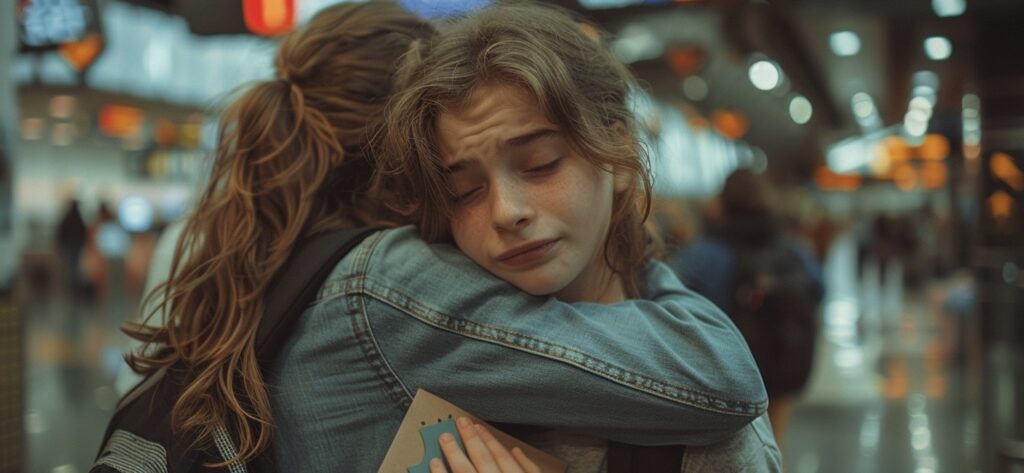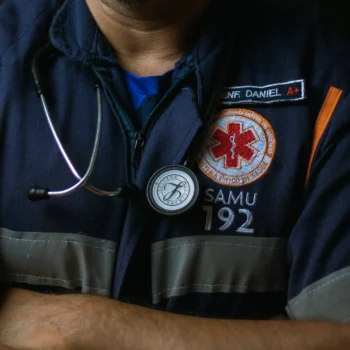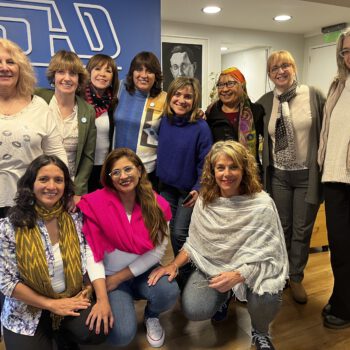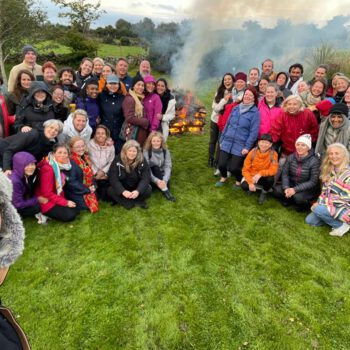Irma is an experienced psychotherapist, traumatologist, Compassionate Inquiry® Practitioner, Private Mentor and Facilitator with extensive experience in PTSD, CPTSD and commonly co-occurring issues like anxiety, depression, eating disorders, addictions, and nightmares. Originally from war-torn Bosnia she studied in the UK, before specialising in trauma therapy. Her diverse background and extensive training uniquely position her to provide holistic and effective client care.
This short edited excerpt of Irma’s interview walks us through her experiences as a war child/refugee, attempting to assimilate to various host cultures. Listen to her full interview on The Gifts of Trauma.

I lived in North Bosnia until I was 11, today I’m based in Prague. What motivates my lifestyle is my search for a place to settle and put down my roots, which stems from not knowing where ‘home’ is.
When I was a kid I had to leave my home in North Bosnia because of the war. As a refugee, I was constantly moving through different countries where I didn’t belong. I lost my friends, I lost my family. and I didn’t even understand why it happened. One day, I had a home, a place where I belonged, I was connected with people, I had a certain nationality… and it didn’t matter to me that some people followed different religions. We didn’t distinguish between Bosniaks, Serbs and Croatians as family members live in Serbia, Bosnia and Croatia. Many of my friends came from mixed marriage families. But at one point it started to matter to those whose values didn’t resonate with ours.
I lost all of my friends because of the war. Many chose to leave Bosnia before it officially started. This was devastating. A Serbian family I was very close to left as it was the safest thing for them to do. Some families stayed, but they all left when we left. Saying our goodbyes forever was shocking.
I ended up in Croatia midway through the war because I was born there and everybody told me I belonged there. But I didn’t know anyone there, and according to the locals I didn’t speak their language. So it was very confusing.
Croatia is a small country with many different dialects, and speech intonations. When we moved there, I had to assimilate by learning a different accent and language. Some words that were appropriate in Bosnia were not appropriate in north Croatia. I was grateful to stay there, as I had a place to be and a level of safety. But every time I spoke, I was corrected. I remember not being able to finish a sentence without at least one word needing to be pronounced differently. So to be accepted, to make friends, for people to not to laugh at me when I used certain words, even though they understood me, I had to assimilate. To keep my new friends and avoid being shamed, I had to meet certain standards. How I expressed myself and how fast I spoke had to change. I’d start by picking up on what was appropriate and connecting appropriateness with likeness. By speaking in appropriate ways, and following social rules, I was more likely to be accepted and less likely to be shamed. Somehow I managed to walk this tightrope, but the experience of belonging eluded me, as I could never relax.
Working so hard to belong was exhausting, but I saw no other choice. There was fear and anxiety in that, as I knew I couldn’t belong until I got it right. I also felt a lot of fear because my dad was fighting on the front line. Sometimes weeks would pass and we wouldn’t know if he was alive or not.
I coped with all that, in part, by detaching, I ignored the war. I pretended it wasn’t happening. Eventually I did make friends and find safety. But then, towards the end of the war, bombs were exploded in civilian areas and our whole family almost died. My dad realized it was too dangerous to fight, so less than a week later we moved to the seaside on the far side of Croatia, which was not affected by war.
This new move was another shock. I lost the friends I had made in a place where I thought I belonged. All of a sudden we were living on a small island, in a different culture, in a very closed community. The people there spoke with a different accent again. .
My long history of assimilation taught me that when I behave in certain ways, when I present myself in certain ways, I am liked. I get to have friends. But what nobody told me about assimilating, is that I would lose part of myself in the process. I desperately needed and wanted friends, because losing my friends and family caused me so much sadness and grief. I was also angry, as everyone tells refugees to ‘go home.’ Nobody wants you. You’re taking up space. But you can’t go home because you’re told you don’t belong there either.
Within a couple of months, at school one day we were asked, “When are you leaving?” The influx of refugees from the central part of Bosnia, from Sarajevo and Mostar were affecting the island. That was a rude awakening.
The experience of the people on the island was very different from ours. They watched the war on television. They didn’t experience what we did. They didn’t even want us to speak about it because hearing about it caused them sadness. Since they chose not to hear about it, I learned to suppress those conversations, to make them feel more comfortable around me.
It was stressful, difficult and hard, and yet I have deep gratitude for that period In my life, because I lived, I survived. Eventually I made lots of friends, I connected with people. I was exposed to different places. I was able to grow. Ultimately, it prepared me for the work I’m doing now. I knew I would be a therapist, a psychologist, or something of that kind when I grew up. So in looking back at all of those losses and the ridiculousness of war… Yes, there’s sadness. But when I see the level of resilience I developed… I am grateful.
The Gifts of Trauma is a weekly podcast that features personal stories of trauma, transformation, healing, and the gifts revealed on the path to authenticity. Listen to the interview, and if you like it, please subscribe, leave a rating or review, and share it with others in your community.



